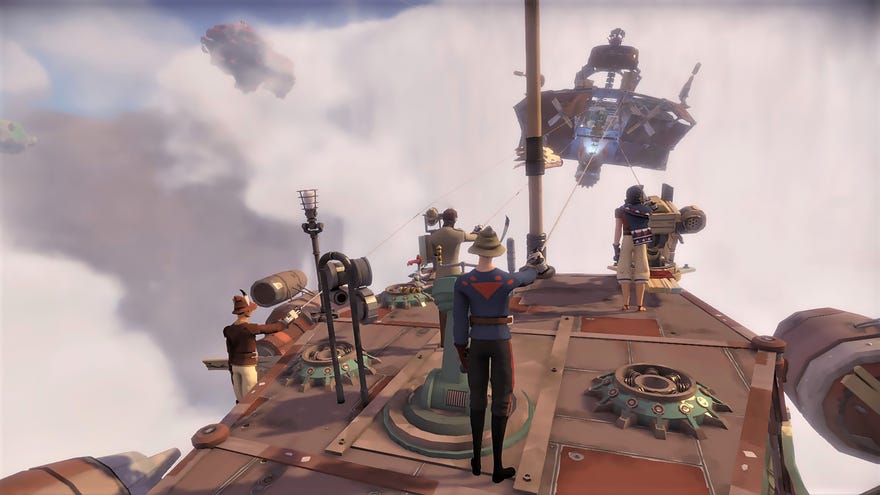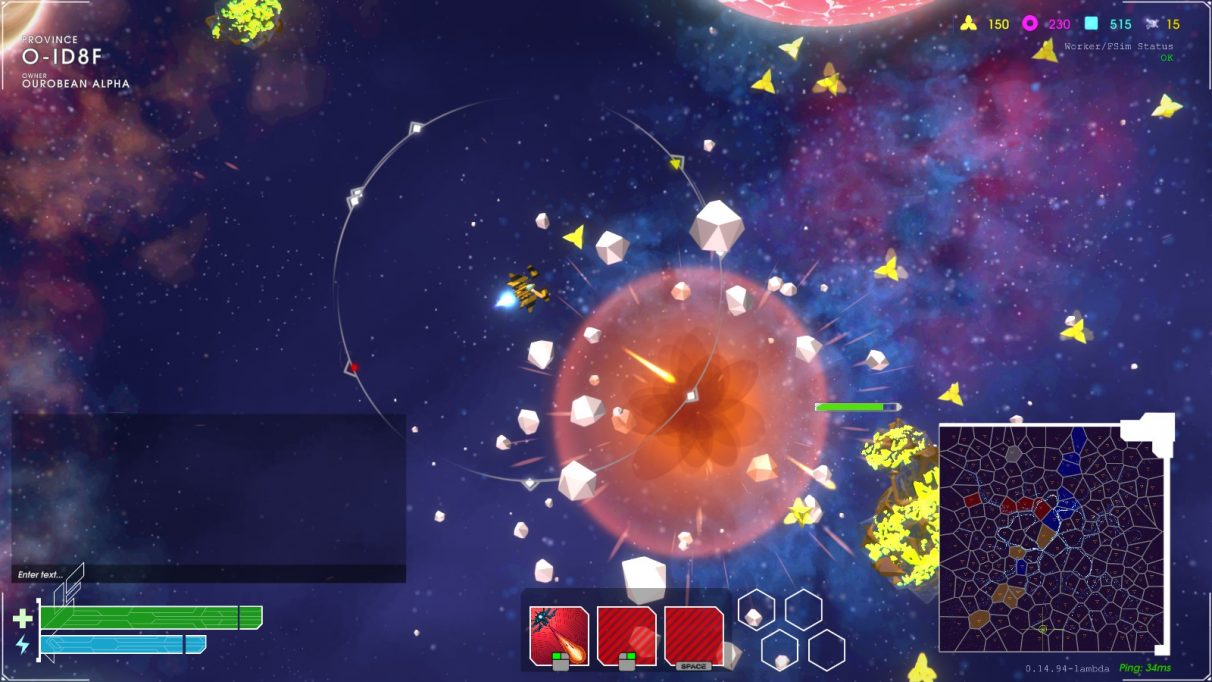Unity say Improbable games don't need to shut down after all, as Epic offer devs cash to go Unreal
A big stinking mess of spin
Games built in Unity using Improbable's SpatialOS cloud server platform will not need to shut down, Unity's makers have stated. Improbable claimed yesterday that a recent change in the popular game creation software's rules would bar developers from using their cloud multiplayer services. This caused a big panic yesterday for developers who yesterday suddenly thought they might need to kill their games. Unity say it's not a recent change, that Improbable have in fact been in breach of the terms for over a year - and knew it. Improbable have vaguely admitting to having made unspecified "errors" but said it's time for game technology to be more open and accountable.
Epic Games, the makers of Unreal Engine, have seized this opportunity to push their own product. Epic and Improbable are jointly establishing a $25 million (£19.5m) fund for developers to switch to "more open" technologies, by which they mean theirs.
Improbable's SpatialOS, to briefly explain, is a cloud gaming framework which developers can plug into games to build multiplayer with many players and elements, the processing load spread across digital water vapour. It's powering things from airship-building sandbox MMO Worlds Adrift to, supposedly, the 1000-player battle royale of Mavericks with destructible environments and trackable footprints. And Improbable yesterday suggested that they've just found out games built in Unity are no longer allowed to use SpatialOS, a claim which Unity vigorously dispute.
"We have been clear with Improbable that games currently in production and/or games that are live are unaffected, and we would have expected them to be honest with their community about this information," Unity co-founder Joachim Ante said in the company's response. "Unfortunately, this information is misrepresented in Improbable's blog."
Spilt Milk, the studio behind multiplayer spaceship shmup Lazarus, initially said they expected their game to shut down yesterday following Improbable's announcement. Several other developers using both Unity and SpatialOS were uncertain about the future of their games (and likely their finances too). Suddenly discovering that years of your work and money may have been wasted is more than a touch alarming. That's a problem Improbable admit they stirred up.
"We just wanted to apologise to the incredible community of game developers we've seen engaging in discourse today," began Improbable's follow-up statement posted before Unity's response. "We apologise that this event we instigated has created so much uncertainty, confusion and pain for so many developers who really do not deserve this."
Unity's Joachim Ante claims that December 2018's changes to their terms and conditions didn't cause SpatialOS to violate the rules, because it was already in violation of the old rules. And, he says, Improbable have known this for ages - contrary to what their doomsaying yesterday suggested.
"More than a year ago, we told Improbable in person that they were in violation of our Terms of Service or EULA," Ante explained. "Six months ago, we informed Improbable about the violation in writing. Recent actions did not come as a surprise to Improbable; in fact, they’ve known about this for many months."
Ante claims Unity had tried to negotiate a partnership with Improbable but, after that failed, they turned off Improbable's Unity Editor license keys two weeks ago.
It is worth noting that Unity do have an interest in the game-hosting business. In 2017 they bought Multiplay, a business hosting game servers for developers and getting their fingers moist in the cloud.
The issue at the heart of this dispute is how Unity games can run on servers and how much they can use cloud computing without needing a separate license. This is a topic that's been covered by Unity's terms for years, though December's additions got a lot more specific in ways that may seem broader. Ante claimed that "at the core, the ... terms are still the same as before" and they expanded that section "because we received requests for clarification as the industry is evolving quickly."
Improbable's follow-up danced around the issue, saying that "both sides have certainly made errors" and "honestly, we don't believe that today was about Unity or for that matter Improbable." Now it gets interesting.
The real issue, Improbable say, is that "a commercial dispute between two companies ... should never threaten access to essential technology used by a large number of developers. A world where this happens frequently will be a world with very little innovation in gaming."
They think that this incident, which they seem to have stoked themselves, demonstrates the industry "might need to consider making some changes which hugely increase the rate of innovation and the collective success we could all experience."
(Note: Improbable talk about "innovation" a lot because they're a tech startup with hundreds of millions of dollars in investment, and I'm pretty sure such deals mandate that "innovation" be said at least once per every hundred words.)
They suggest creating a "code of conduct" or "basic set of principles" for the industry to mediate power and protect developers, tools companies, and so on. Which sounds noble and all, though I do note that their points align with defending their own interests and mistakes. It is a bit like that sly old way of presenting your wants as our needs.
Speaking of... Epic Games, the creator of Unreal Engine and Fortnite, have joined the melee.
Epic and Improbable announced overnight that they are jointly building a $25 million (£19.5m) fund "to assist developers who are left in limbo by the new engine and service incompatibilities that were introduced today." Y'know, the incompatibilities that weren't introduced that day, might not exist, and might have left developers in limbo largely because Improbable told them they were in limbo.
Their statement talked about the need for "more open engines, services, and ecosystems" and their belief that "companies should work together to support mutual customers in a straightforward, no-surprises way." Y'know, like that lovely pair Improbable and Epic do.
The tech industry is opportunistic and all sides are arguing they're the good ones really, of course, but this does feel grody. Given how much of Improbable's statement seems incorrect, how much they alarmed developers, and how long they supposedly knew they faced a problem, this does look like an attempt to pressure Unity by turning public opinion against them.
To be clear: if Unity have changed their terms to grab power they didn't hold and that will affect developers and games, that's terrible and they should be held accountable. At this point, it's hard to tell exactly what's going on, everything clouded by the conflicting and self-serving spin from all sides. But the story certainly doesn't seem to be as initially presented.
Disclosure: I've pals at both Unity and Improbable.











